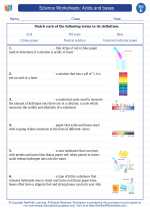Chemical Composition
Chemical composition refers to the identity and relative proportions of the different elements that make up a substance. Understanding the chemical composition of a substance is important in chemistry as it helps in identifying the properties and behavior of that substance.
Elements and Compounds
Elements are substances that cannot be broken down into simpler substances by chemical means. Each element is made up of atoms with the same number of protons. Compounds, on the other hand, are substances composed of two or more elements that are chemically combined in fixed proportions.
Chemical Formulas
Chemical formulas are used to represent the chemical composition of compounds. They show the symbols of the elements present and the ratio of their atoms in the compound. For example, the chemical formula for water is H2O, indicating that each molecule of water contains two hydrogen atoms and one oxygen atom.
Studying Chemical Composition
To study the chemical composition of a substance, one can use various analytical techniques such as spectroscopy, chromatography, and mass spectrometry. These techniques help in determining the types of elements present and their relative proportions in a given sample.
Practice Questions
- What is the difference between an element and a compound?
- Explain the significance of chemical formulas in representing compounds.
- How can analytical techniques help in determining the chemical composition of a substance?
Summary
Chemical composition refers to the elements that make up a substance and their proportions. Understanding chemical composition is essential in chemistry and can be determined through analytical techniques.
[Chemical Composition] Related Worksheets and Study Guides:
.◂Science Worksheets and Study Guides Fifth Grade. Science Worksheets: Acids and bases

 Activity Lesson
Activity Lesson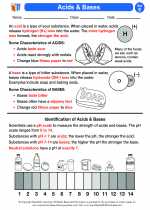
 Worksheet/Answer key
Worksheet/Answer key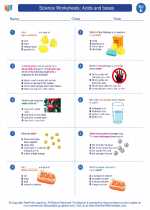
 Worksheet/Answer key
Worksheet/Answer key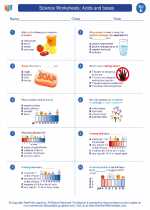
 Worksheet/Answer key
Worksheet/Answer key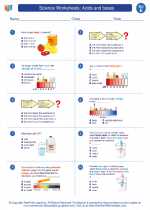
 Worksheet/Answer key
Worksheet/Answer key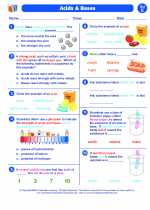
 Vocabulary/Answer key
Vocabulary/Answer key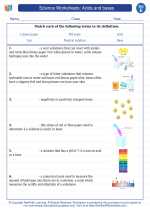
 Vocabulary/Answer key
Vocabulary/Answer key